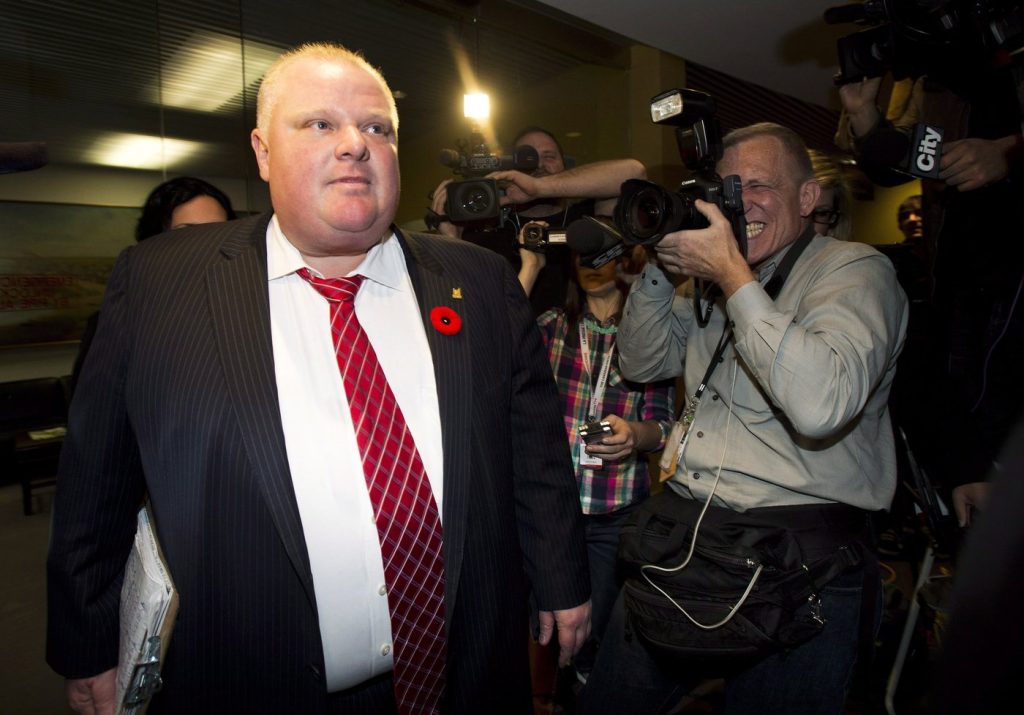London native Shianne Brown vividly recalls her disbelief upon learning that Toronto mayor Rob Ford had been caught on video smoking crack cocaine—a revelation that shocked many when it emerged in 2013. As she reflects on that period, Brown remembers thinking, "What the hell is happening in Toronto? That’s crazy."
Rob Ford quickly transformed into an international spectacle, first for the explosive allegation he later admitted and subsequently for a series of scandals, which included claims of public drunkenness and even physically knocking over a city councillor. A decade later, Brown has directed a new Netflix documentary titled Trainwreck: Mayor of Mayhem, which chronicles Ford's rise to power and his tumultuous time in office.
The documentary, released on Tuesday, is part of Netflix's Trainwreck anthology series, aimed at exploring some of the most disastrous events in mainstream media. Brown emphasizes the importance of portraying Rob Ford as more than just a political figure associated with scandal. "I wanted to really tap into the human being that is Rob Ford, not the political headline that is Rob Ford," she stated during a video call from London. Brown aimed to do justice not only to Ford's legacy but also to his supporters, friends, and family.
Despite reaching out to Ford’s brother, Ontario premier Doug Ford, to participate in the film, Brown reported that he “kindly declined.” She acknowledges the tragic nature of Ford's story, particularly concerning his death from cancer in 2016 at the age of 46, and respects the family's wishes regarding the project’s focus on the more challenging aspects of Ford's life.
The film combines archival footage with interviews from local journalists, such as Robyn Doolittle, and insights from Ford's inner circle, including his former driver, Jerry Agyemang. It paints the picture of a populist leader who initially connected with disenfranchised voters through a tax-cutting, anti-establishment agenda. Brown describes Ford as someone who made “the disenfranchised feel emboldened,” highlighting his efforts to engage with everyday individuals—often speaking to those performing essential yet underappreciated jobs.
Brown draws parallels between Ford's narrative and broader global political movements, suggesting that Ford’s rhetoric resonates today amid a shift in how power is garnered. “It’s a story about the underdog,” she asserts, referencing phenomena such as the Brexit referendum in the U.K. and Donald Trump's unexpected presidential win. She believes the film underscores the importance of listening to people who feel marginalized or unheard.
While some politicians adopt a "divide and conquer" strategy, Brown believes Ford’s intentions were not malicious; rather, he appeared to genuinely want to help people, even if his policies alienated half the city. Nevertheless, she notes Ford's antagonistic relationship with the media, which is a core component of the documentary. The film highlights Ford's frequent outbursts against local reporters, revealing a tense dynamic that ultimately contributed to the challenges he faced.
Brown reflects on how Ford’s denial and resistance to media accusations, particularly regarding his crack use, made his situation more precarious. She observes that had Ford admitted to his substance abuse early on, it might have helped his image. He became a frequent target for late-night comedians and his bizarre public behavior was extensively covered, spotlighting the extent of his struggles with addiction amid media scrutiny.
Throughout her investigation, Brown began to view Ford's addiction not merely as a scandal but as a complex issue exacerbated by his public persona. “This was a man battling addiction in an intensely public arena. It’s a disease,” she comments, expressing a desire for viewers to understand the circumstances that led to the infamous crack video. The documentary aims to provoke thought around Ford's life choices and how he came to find himself in such dire situations.
Ultimately, Brown hopes to encourage a more nuanced understanding of who Rob Ford was, what propelled him into the spotlight, and the tragic elements of his legacy that continue to resonate today.











